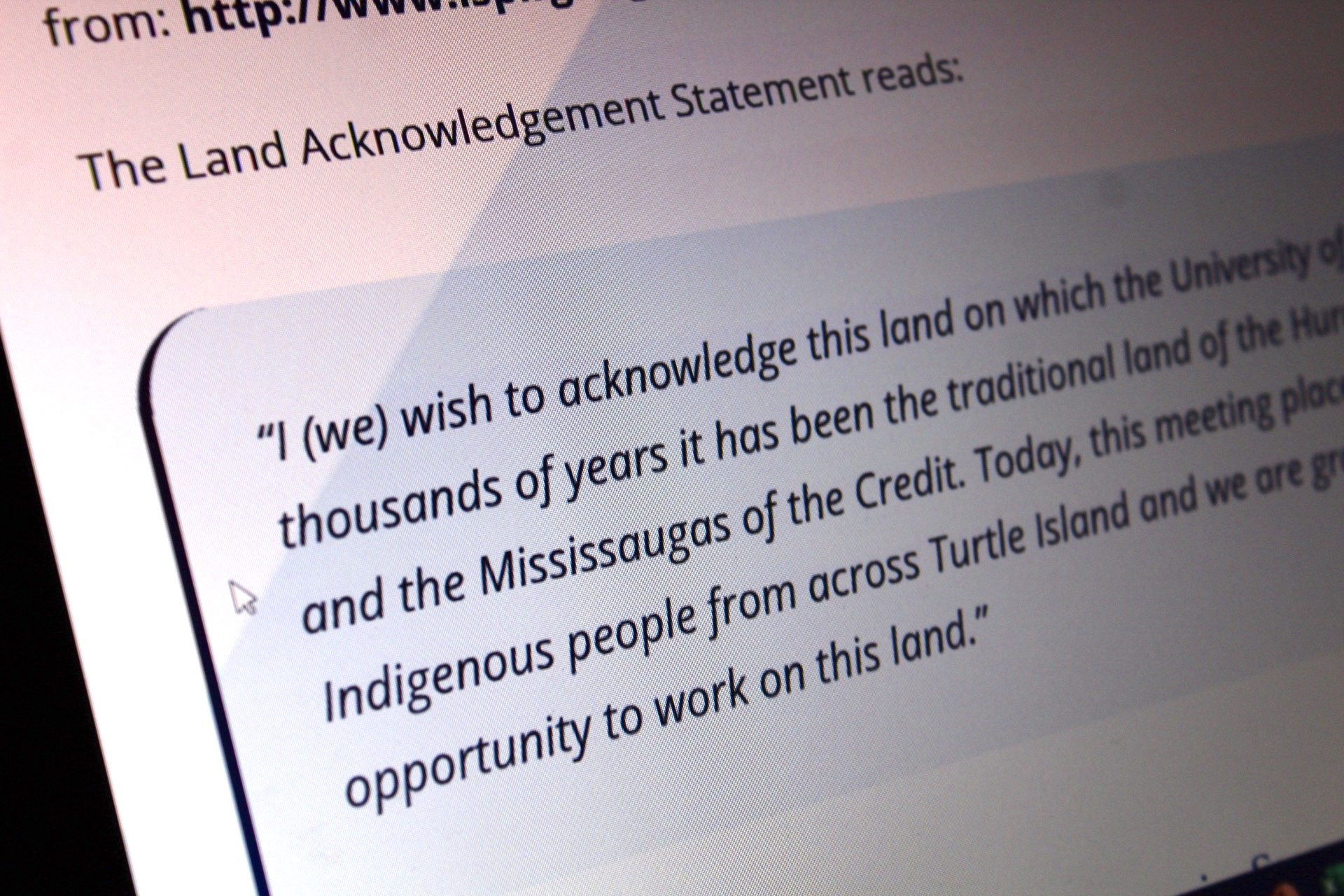We live on stolen land
The ripples of settler colonialism in Canada.
Settler colonialism is a system that aims to displace and erase an existing population on a land to establish a new population and claim the land as its own. It ties into colonization. This is the case with the country that many of us call home today: Canada.
Canada came to be through the establishment of European settlements that pushed the Indigenous First Nations out through various systemic ways to establish their own colony.
Although there were treaties in place between some settlers and Indigenous peoples, many of them were unfair, favouring and being taken advantage of by settlers. This was due to the continuous dehumanization of the Indigenous people and the belief among settlers that the white race was superior. Settlers also disrupted and displaced the Indigenous population by creating treaties, laws, acts, reserve systems, and residential schools aimed at erasing Indigenous culture, identity, and self-determination. All in an attempt to assimilate, control, and get rid of the “Aboriginal” peoples.
Settler colonialism has also impacted politics. Unfortunately, colonialism is still rooted in many of the government policies and structural organization of the country today, resulting in a lot of systematic oppression of the Indigenous people and other minorities as well. This systemic oppression is present in issues such as unequal health care, underrepresentation in politics, over-policing, as well as unequal access to basic human rights like water and electricity for Indigenous communities. This is most prominent with how Canada has been trying to hide and erase the memory of the Indigenous using cruel and unusual methods.
Settler colonialism has impacted society and culture as a whole. Due to colonization and attempts to erase culture, many traditions and practices were lost, leaving behind ongoing trauma. Luckily, Indigenous culture is slowly becoming more recognized in Canada today, with different workshops, the creation and celebration of National Indigenous History Month in June, courses on traditions and practices, and most importantly, Indigenous people holding pride, preserving, sharing, and keeping their diverse cultures alive.
Due to Canada’s dark past, many institutions and businesses use land acknowledgment to recognize Turtle Island, the ancestral land of many Indigenous people in North America. Land acknowledgements are meant to recognize all the pain that colonization has done and appreciate the Indigenous peoples who were impacted.
Genocides have taken and are still taking place around the world. Indigenous people in Canada faced a cultural genocide, characterized by the intention of getting rid of a culture and the identity of the group of people in question. In this case, it was the attempt to erase Indigenous peoples in Canada as a distinct group. Residential schools were one of the most brutal attempts at erasing culture and identity, and they are a key component of the cultural genocide that took place. These “schools” were run until 1996 by the church, where Indigenous children were forcibly kidnapped from their families by the government in an attempt to “civilize” or “westernize” them.
Residential schools forcibly converted Indigenous children to Christianity, gave the children European names, forbade them from speaking their native tongue, and prohibited them from celebrating Indigenous practices. The schools were also unsafe, with frequent fires, low-quality food, and poor housing and living conditions. Children in the schools also faced physical, mental, and sexual abuse, resulting in many being tortured and losing their lives.
The “LANDBACK” movement was created to decolonize Indigenous lands across North America. The LANDBACK movement can have two meanings. The first is the restoration of land ownership. The other is the fight for “comprehensive land claims and agreements.” However, the movement is much more than just the fight for land, it is a way for Indigenous peoples to confront colonialism from the root, to reconnect with their ancestral land, Turtle Island, and the earth. The LANDBACK movement also became a symbol for the reclamation of what was taken and destroyed by colonization.
Settler colonialism is brutal and has had lingering effects on the Indigenous people in North America. Today, many of us study and live in Canada, and it is especially important for us to recognize the history of the Indigenous people and their ancestral land, and to prevent the brutal colonialism that has become the blueprint for similar atrocities across the world. Simultaneously, we must appreciate and recognize Indigenous culture and traditions, helping to keep them alive.

